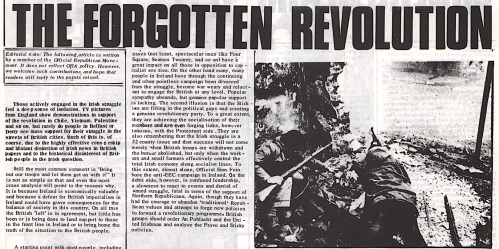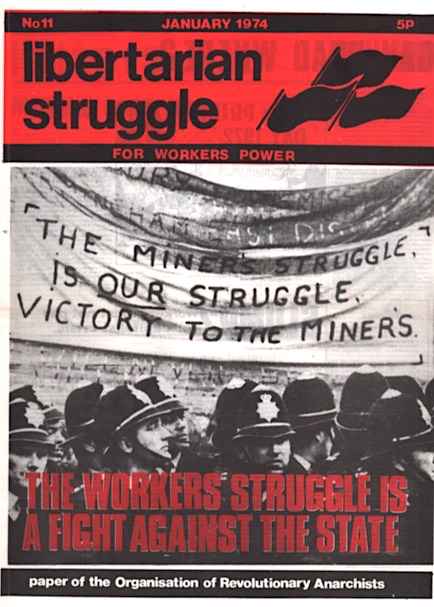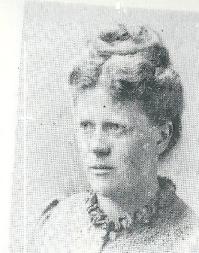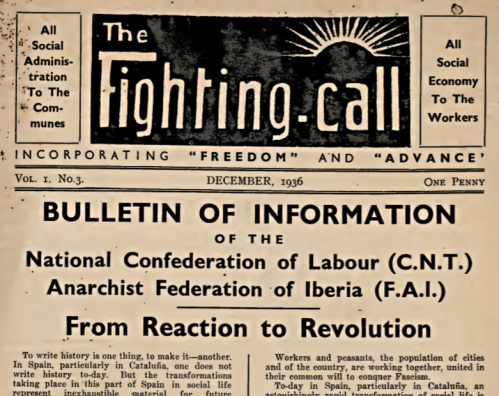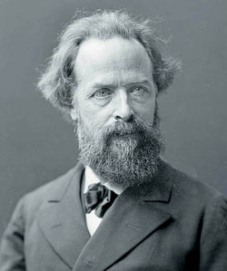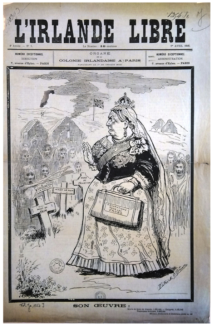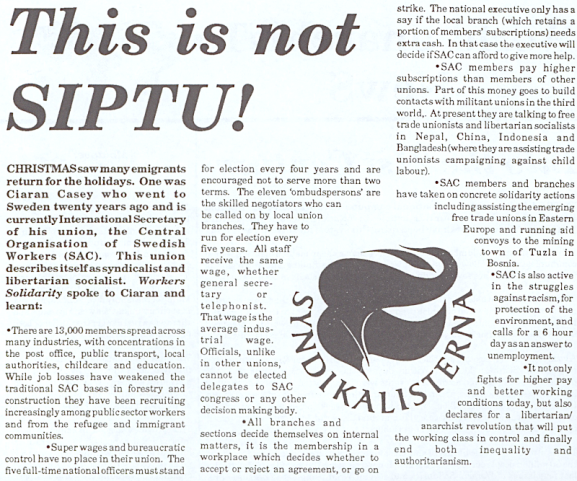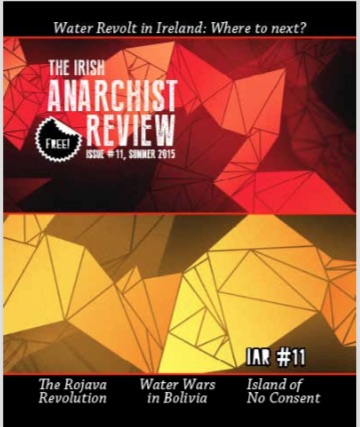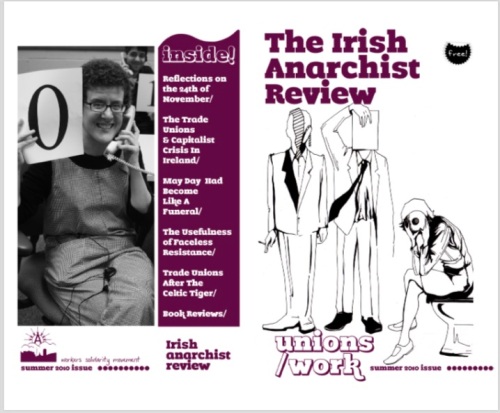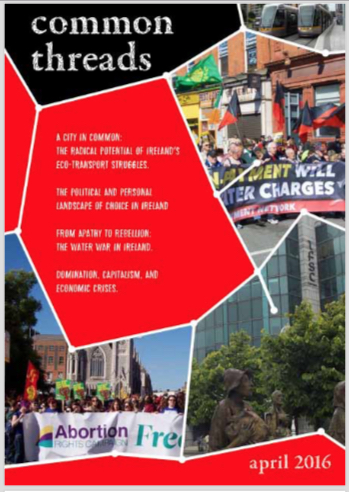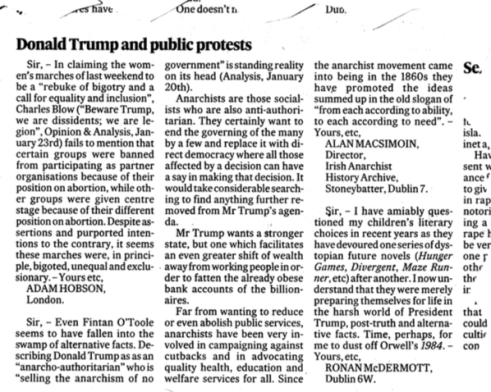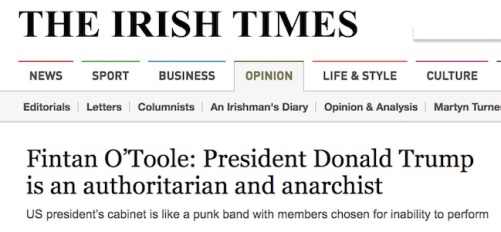
Conor Cruise O’Brien
When Conor Cruise O’Brien was a student at Trinity College Dublin in the mid-1930s he saw himself as a radical and contacted the legendary anarchist Emma Goldman asking her to write for the first issue of “a new revolutionary weekly which I am about to start”.
 The Cruiser (as he was known) was a young liberal secularist whose first wife came from a Belfast Presbyterian republican family. Her father, Alec Foster, was a founder member of the Northern Ireland Civil Rights Association.
The Cruiser (as he was known) was a young liberal secularist whose first wife came from a Belfast Presbyterian republican family. Her father, Alec Foster, was a founder member of the Northern Ireland Civil Rights Association.
In later years he joined the Labour Party and was elected to Dail, where he became a Minister in the 1973-77 Fine Gael-Labour government. He quickly transformed himself into a right wing pro-imperialist, sometimes referred to as the British ruling class’s “favourite Irishman”.
He became extremely hostile to Irish republicanism, discarding the views he held just a few years previously. He also discarded his opposition to censorship when he banned members of Sinn Fein from TV and radio. He said he wanted to “cleanse the culture” of republicanism and he would like the law to be used against teachers who allegedly glorified Irish revolutionaries. He also wanted it used against newspaper editors who published pro-republican readers’ letters.
The Cruiser supported police brutality during the 1973–77 government, “it didn’t worry me.” At that time a special unit of the Gardai, known as the Heavy Gang, was tasked with beating ‘confessions’ out of suspects. Towards the end of his life he joined the short-lived United Kingdom Unionist Party in Northern Ireland.
TEXT OF O’BRIEN’S LETTER
Dear Emma Goldman,
My reason for writing to you is that my aunt, Mrs. Sheehy Skeffington*, who had, at my request, lent me your ‘Anarchism and Other Essays’, gave me your address and told me you might be willing to do me the favour of writing a few words for a new revolutionary weekly which I am about to start in this very traditional college.
A letter, or brief article from you would set a fine note for our first number. Anything on anarchism, marriage (in this College women are not admitted after six o’clock nor are they permitted to pollute the male dining hall with their presence), on your recent stay in Spain, or simply a letter on the foundation of such a revolutionary magazine, would be accepted most gratefully.
Or if you prefer, something which other magazines are afraid to print. You see we are committed to no policy except one of attack on established tradition, and working towards individual liberty.
I am very sorry this will be a “thank you job” but like most revolutionaries we have no capital.
It would be impertinent in me to say how much I admire your work, and your struggle and how much I have been influenced by them.
Most sincerely,
Conor Cruise O’Brien
P.S. Our rooms here in College are decorated with two of the anti-fascist posters which you gave my aunt – the one with “Au viva nuestros …” and the ad. for Tierra y Libertad. They have caused a good deal of discussion.
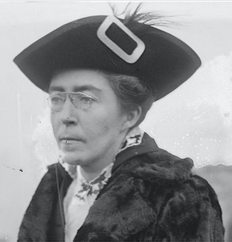
Hannah Sheehy Skeffington
TEXT OF GOLDMAN’S REPLY
Dear Conor Cruise O’Brien,
Thank you for your kind letter. I was glad, indeed, to hear from someone related to my dear friend Mrs. Sheehy Skeffington, for whom I have a great admiration. It was good of her to let you read my ‘Anarchism and Other Essays’; it is out of print now and it is therefore good to know that those who still possess a copy are making use of it.
Thank you for asking me to contribute to the Revolutionary weekly you are contemplating. I regret I cannot do so at this moment, as I am extremely busy with organisational work on behalf of my comrades in Spain and with the preparation of material for a series of articles on the colossal constructive work that is being done in Spain.
However the, the enclosed little tribute to Buenaventura Durruti who was the great leader of the forces that drove the Fascists out of Barcelona and Catalonia, may interest you. He was treacherously shot down a year ago this month. If you care to include it in your first issue, I will be very glad indeed.
I am sending you by the same mail a copy of the brochure which was published last year; it will give you an idea of the life, work and heroic death of Durruti.
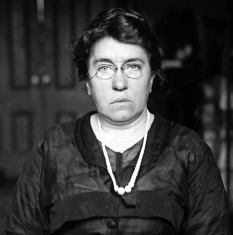
Emma Goldman
It was astounding to me to hear that such hoary traditions in regard to women are still prevailing in your College. Well, there must be something organically wrong with the male members if they cannot endure the presence of the opposite sex in their midst! Even Spain, where the status of women is still fifty years behind that in the Scandinavian countries, the United States and England, is beginning to show a different attitude than that which was held prior to the Revolution of July 19th, 1936.
I am preparing some articles for publication, among which will be one on the struggle of Spanish women for the emancipation and enlightenment of their sex, I will be glad to send you a copy when it is ready.
Please keep in touch with me and let me see your paper when it appears. I am so glad you have posters of TIERRA Y LIBERTAD. If I was sure that new posters and photographs would reach you, I would be glad to mail you some, but knowing of the severe censorship prevailing there, I do not like to risk sending them.
*Hanna Sheehy Skeffington was a suffragette, feminist and Irish republican. She was a founding member of the Irish Women’s Franchise League and the Irish Women Workers Union, and took part in the 1916 Rising. Her husband, Francis Sheehy Skeffington, was one of three journalists murdered in cold blood by the British Army officer John Bowen-Colthurst during the Rising.
